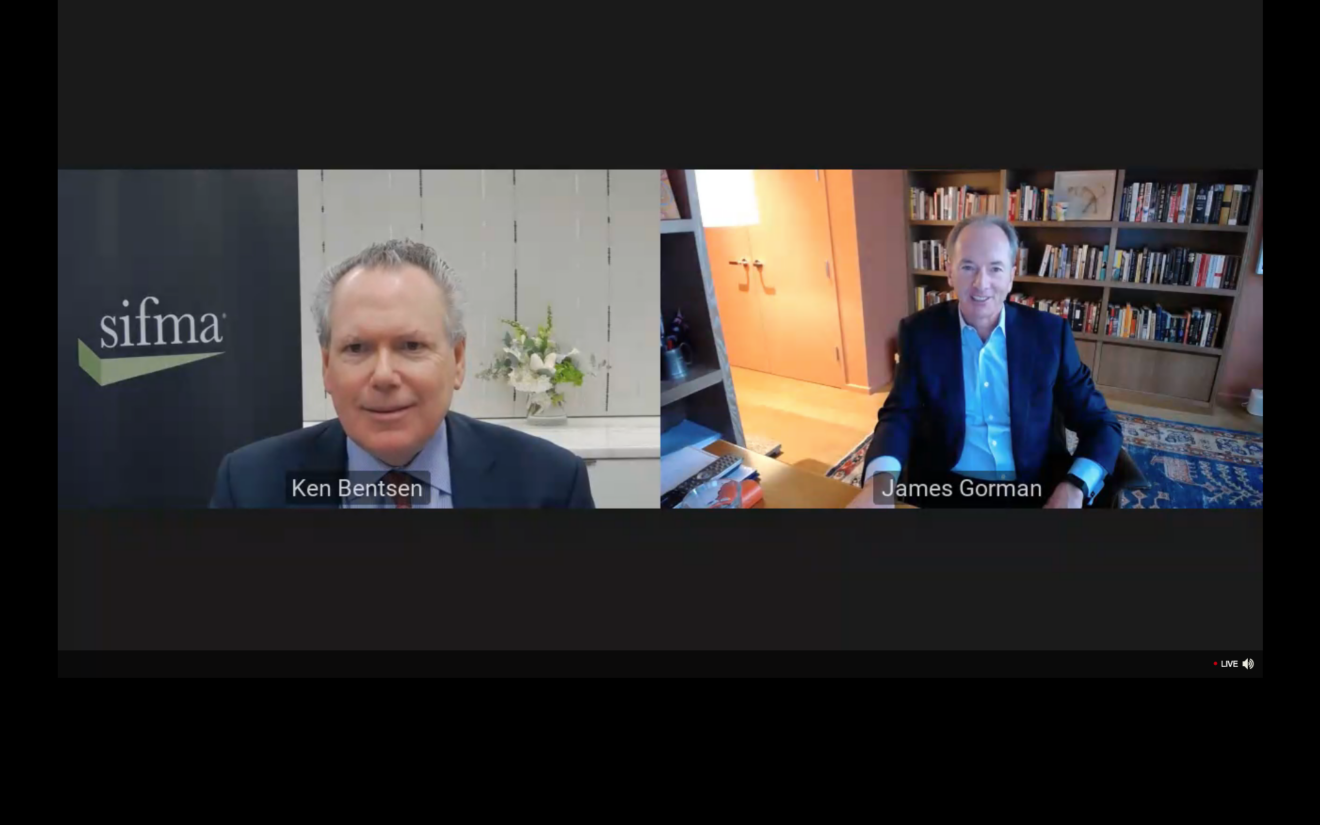Wall Street firms’ investments in internal technology over the last couple decades helped them do what was previously considered impossible throughout the coronavirus pandemic, and kept capital markets operating smoothly, Morgan Stanley CEO James Gorman said.
The coronavirus pandemic brought an entirely new challenge to financial firms — how to operate with a vast majority of staff working outside of the office, Gorman told SIFMA President and CEO Kenneth E. Bentsen Jr. during the group’s Annual Meeting.
“For everybody it’s been a completely new experience,” Gorman said. “Sometimes you just have to confront new experiences with the best information you have and our first inclination was to let people work from home, and our business held up throughout.”
And that success was not unique to Morgan Stanley. Despite roughly 95% of financial industry employees working remotely during the pandemic, it is widely believed that markets held up well through the initial period of volatility in March.
“If you had said to any institution small or large, let alone the global ones, that you were going to be working with 95% of our employees at home, they’d say that’s not possible,” Gorman said. “This was the ultimate test, and I think the industry did extraordinarily well.”
During the height of the pandemic-induced volatility, Morgan Stanley saw a streak of about 10 days during which institutional trading volumes were at least 60% higher than previous records, “and we didn’t have any defaults or breakdowns of any size at all,” Gorman said.
The firm’s resilience through that period can be attributed in large part to the roughly $4 billion a year it spends on technology, an investment that has “paid dividends” over the last couple decades, he said.
“The technology supporting our businesses is unbelievable,” Gorman said. “To function as a global securities firm… with so many people working from home is a remarkable testament to the resilient systems that we’ve invested so much in.”
While the bank has been returning some of its employees to the office, most will likely continue working remotely for the foreseeable future. Currently about 40% of its staff in Asia have returned to the office, compared with 30% in Europe and only about 10-12% in the US. Gorman said he expects the bank to have about 25% of its total global workforce back in the office by the end of the year. However, he does not believe the in-office headcount will ever return to pre-coronavirus levels.
“How that translates into our physical footprint, it’s too early to say, but clearly we’ve got more flexibility there,” Gorman said.
Still, the office will always remain “the primary place of doing the work,” he said.
“I firmly believe that the office is important for mentoring, development, socialization, creativity, brainstorming, all the things you do with others, but we can certainly be more flexible,” he said.
